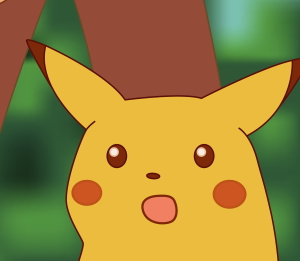on
How I learned to be vulnerable: a postmortem of my University of Waterloo undergrad
My parents didn’t know I had failed three university courses until years later, when I was almost finished with my master’s degree and already accepted a full time job offer.
Just to illustrate, here is a brief timeline…
2012
- Entered University of Waterloo
2014
- Failed Microeconomic Theory 2 (ECON301)
- Failed Macroeconomic Theory 2 (ECON302)
- Failed Monetary Economics (ECON304)
- Kicked out of Economics to Liberal Studies…
 Imagine my “surprise”, while fully knowing it was my own fault.
Imagine my “surprise”, while fully knowing it was my own fault.
So what happened? And how did I manage to get accepted into the University of Toronto after that? Was it that I magically vanished all those failures, or that my definition of “failure” was incorrect? After crawling out of the then flaming ruins of my academic career and pulling myself back up, I finally learned that the answer is the latter.
Sure, I had failed some courses, but I wasn’t a failure. Neither had I failed at life. I was placing way too much of my self worth in how smart I could prove myself to be in a percent grade, not how much I was enjoying life and exploring knowledge in my own way.
True to the title, I am writing out what I learned from this very vulnerable time in hopes that someone who is going through similar struggles can take something away, and also myself if I ever forget these hard learned lessons.
Don’t pretend everything is perfect when it’s not
My pride and ego prevented me from admitting how badly I was struggling in class to my own family. Not even my closest friends knew, because I never showed any sign anything was wrong on the outside.
However, it wasn’t that saying something out loud to friends and family would help raise my grades.
It was admitting it to myself.
It was admitting to myself that the study methods that had worked so well for me in high school, no longer worked in university. It was admitting to myself that even though I considered myself to be “quite smart”, I needed to work hard on top of that.
Once I finally reined in my disbelief and pride, I buckled down and thoroughly changed the way I approached studying. I still liked to study smart, not just harder (diminishing returns), but I was no longer delusional as to what was “smart”. It certainly wasn’t short term memory and regurgitating as much as I could, but deep understanding to the point that I could explain a concept to someone else. It wasn’t studying part of the content and praying that the exam would only be on the content that I had studied - life doesn’t work that way. It was taking luck into my own hands and linking my understanding from one concept to the next so that I could react no matter what kind of questions were on the exam.
Here’s a continuation of the timeline…
2016
- Microeconomic Theory 3 (ECON401) - 87%, 3rd in class
- Readmitted to Economics, with Honours!
- Senior Honours Essay (ECON472) - 90%
- Macroeconomic Theory 3 (ECON402) - 85%
- Grad school applications
2017
- Accepted to University of Toronto MA Economics
- Econometric Theory (ECON421) - 91%, 1st in class
Learn and have fun - don’t be chained by the rules of the grading system and life script
Once I had regained confidence in my learning, I realized that I had a lot of fun applying the “tools” (e.g. linear algebra, calculus). Around me, many people were thinking about the checklist for either employment or graduate studies, and I was no different.
The good ol’ checklist: GPA, co-ops/internships, extracurriculars… all that same old stuff repeated to students since elementary school. You need this and that to get accepted to this and that.
It wasn’t the categories on the checklist that was the problem: it was the perceived value of different activities that was the issue. Work experience at A is better than work experience at B, ceteris paribus. Having course C looks better on the transcript than course D. (Bonus: course C is a bird course, that’s why you should take it.) These comparative orders were dished out as truth, but the truth is, I found most of those highly valued activities boring as hell.
So I went back slightly in the direction I had originally came from: being a little bit delusional, but not too delusional. As long as what interested me was kind of within the rules, I stretched them as much as I could. I did my research in non-typical areas (compared to trade, monetary policy at least), such as video games and Reddit. I put time into coding my own random projects despite it not seeming relevant at all for the grad programs I was applying for.
These activities that didn’t seem to be the best things on the “checklist” for success ended up working out superbly for me, years later. I’ve had some incredible experiences like being flown to Paris, France for an interview, and going to the biggest gaming industry events and meeting creators of my favorite franchises. (Gaming is too cyclical an industry so I am choosing for it to be a hobby.)
I ended up defining my own checklist - which is one of my favorite learnings from those years in undergrad. I will not live by someone else’s checklist or unconditionally accepted convention (the common term seems to be “life script”). It took both vulnerability and strength to admit that what I love to do is different from societally conventional life scripts, and that’s fine. I know it would make me unhappy if I didn’t personally love what I put in my life script.